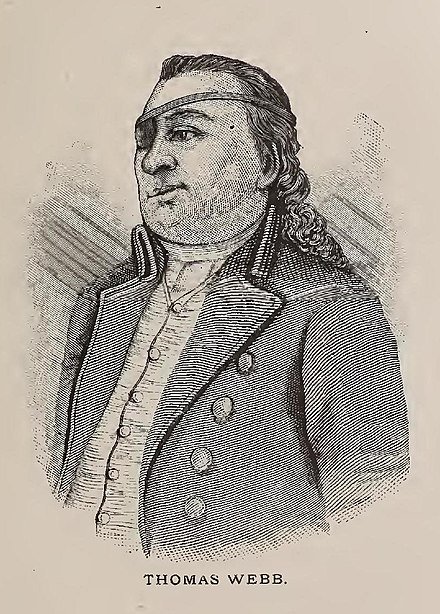
Captain Thomas Webb
Thomas Webb (1724-1796) is considered to be a Methodist pioneer for his work spreading the movement in the American colonies. Arriving in the New World as a soldier in the British army during the French and Indian (Seven Years’) War, he lost an eye during the Battle of Montmorency in 1759. He soon retired from active duty, married, and had a son. While it is not known for sure, it is presumed that his wife, Mary Arding, soon passed away and Webb was forced to leave his son in the care of his wife’s family on Long Island while he returned to England.
While back home in England, he experienced a religious conversion after listening to a Moravian preacher and soon found a Methodist congregation which he joined. After filling in for an absent preacher at a meeting in 1765, he soon became a full-time evangelist. He returned to Albany, NY the following year with Wesley’s blessing to preach in the colonies. In 1767, he arrived in Philadelphia, where he joined what would become the congregation of St. George’s in their initial home, a sail-rigging loft on Dock Street. Some credit Webb with converting the congregation to Methodism. Webb preached the first Sunday gospel at St. George’s Church on November 26, 1769.
After helping to establish more Methodist societies in New York, New Jersey, and Delaware, he messaged John Wesley to ask for more preachers to be sent from England. In 1771, Wesley obliged with the arrival of Francis Asbury. Webb’s allegiance to the British crown found him accused of espionage and led to his detainment in both Bethlehem and Philadelphia during the Revolutionary War. He and his new wife and family were able to return to England in 1778 where he lived in Bristol until his death.
Source: Captain Thomas Webb, Pioneer of American Methodism, Frank Baker.
